10 designs worth knowing by the late Alessandro Mendini
February 22, 2019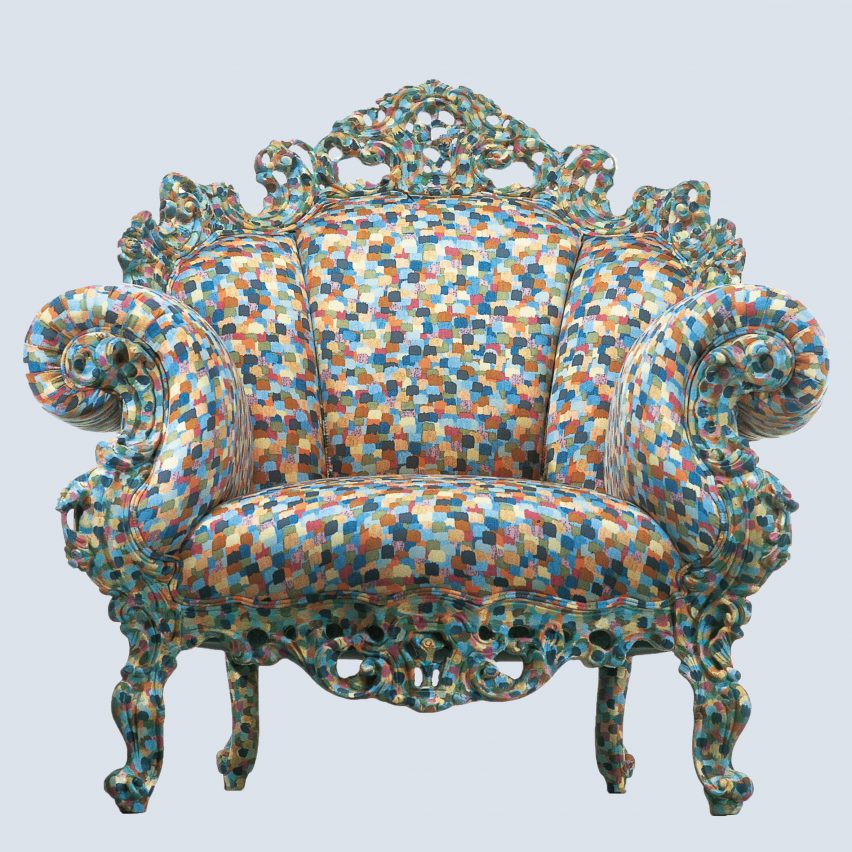
Following the death of influential Italian architect, designer and theorist Alessandro Mendini this week, here's a look at 10 projects completed across his 60-year career, from the seminal Proust chair to a chequered bus stop.
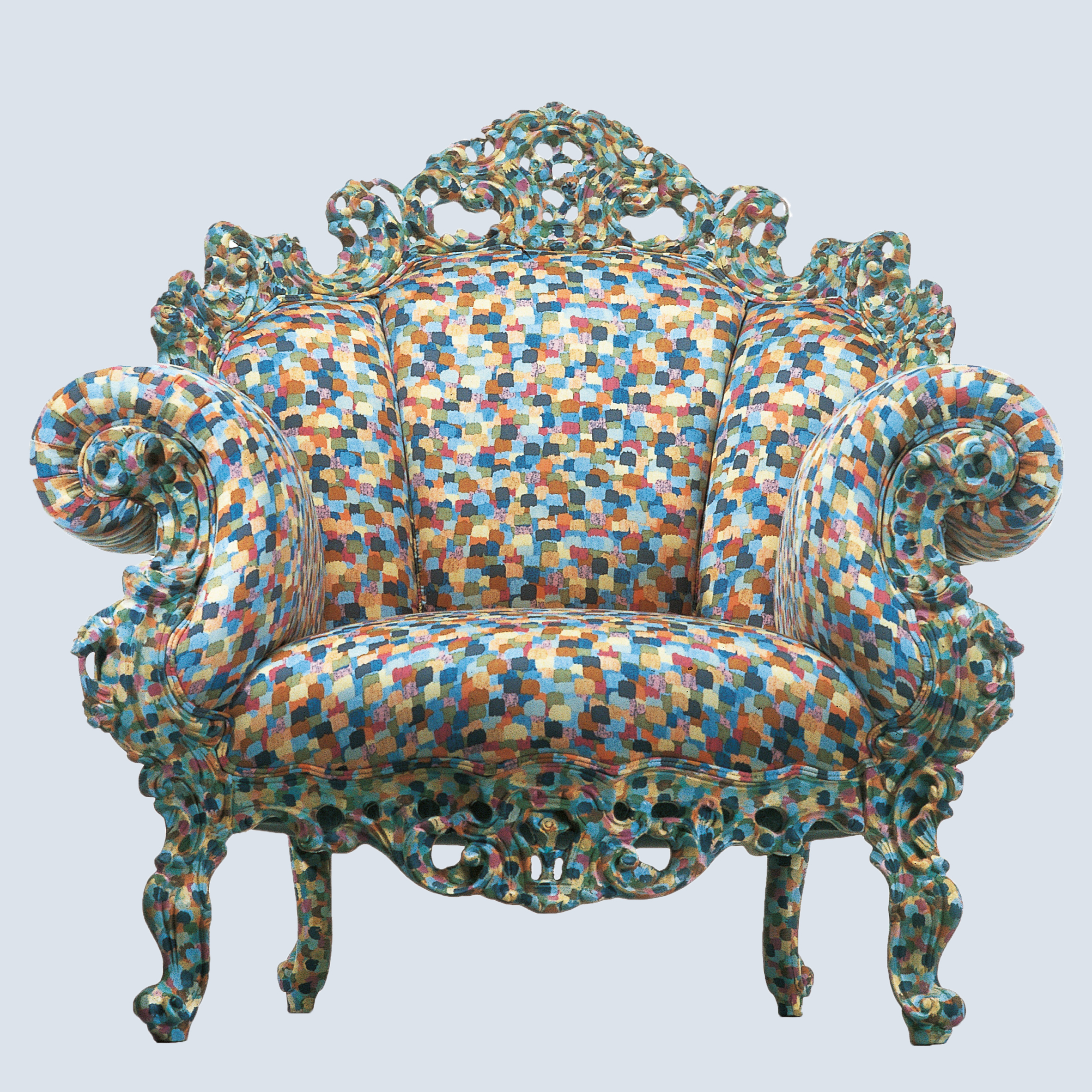
Proust armchair, 1978
Mendini's most iconic project, the revolutionary Proust combined a baroque shape with a pointillist surface pattern derived from the work of artist Paul Signac, made up of hundreds of tiny hand-painted dots.
The chair was designed with prolific French writer Marcel Proust in mind. It has been reimagined many times over the years, but notably in 2015 it was launched in plastic by furniture brand Magis.
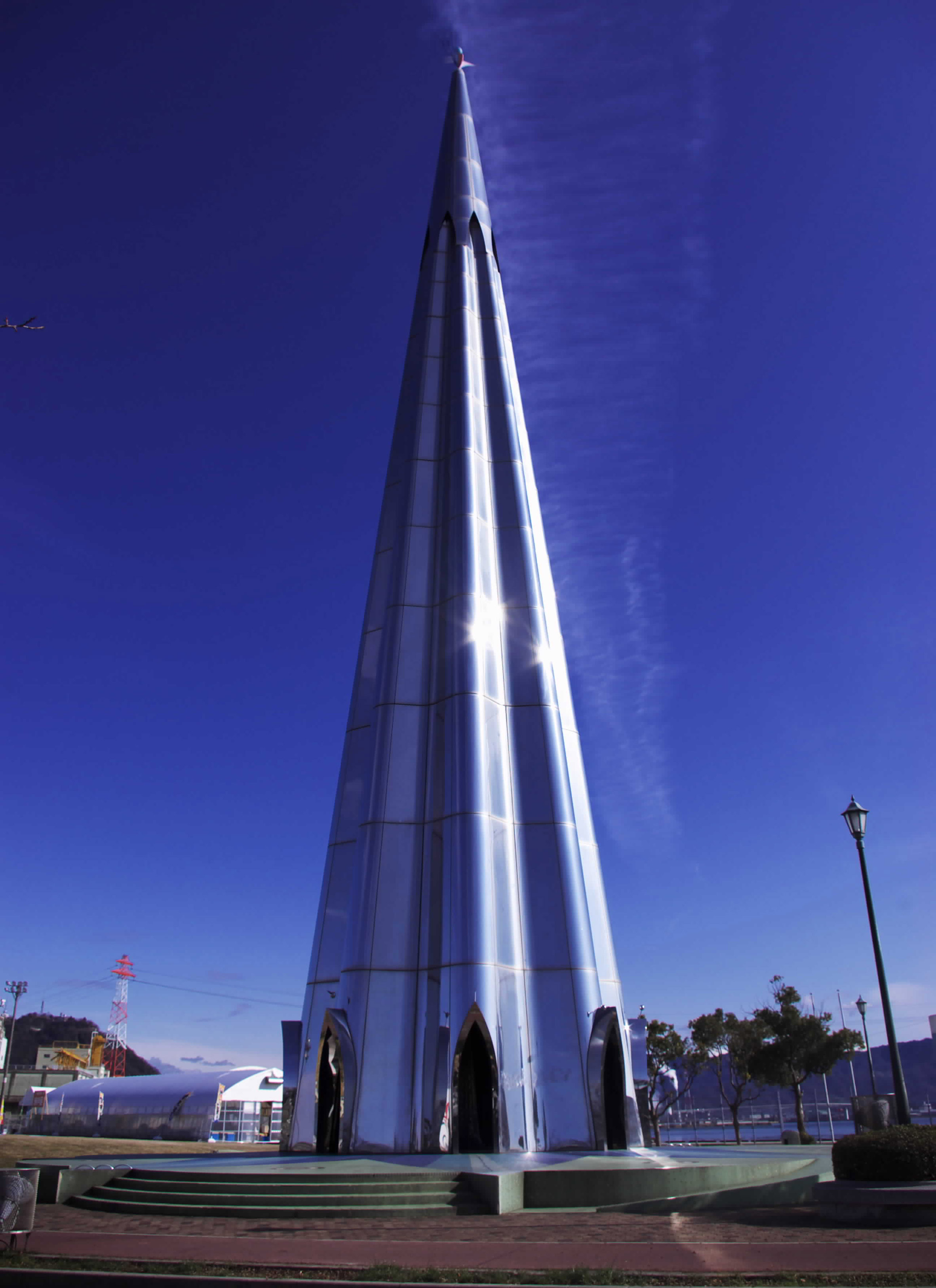
Torre Paradiso, Hiroshima, Japan, 1988
This commemorative tower in Hiroshima was built to mark the centenary of the city's ferry terminal. Its striking shape was designed by Mendini to create a symbol of hope and prosperity for the city.
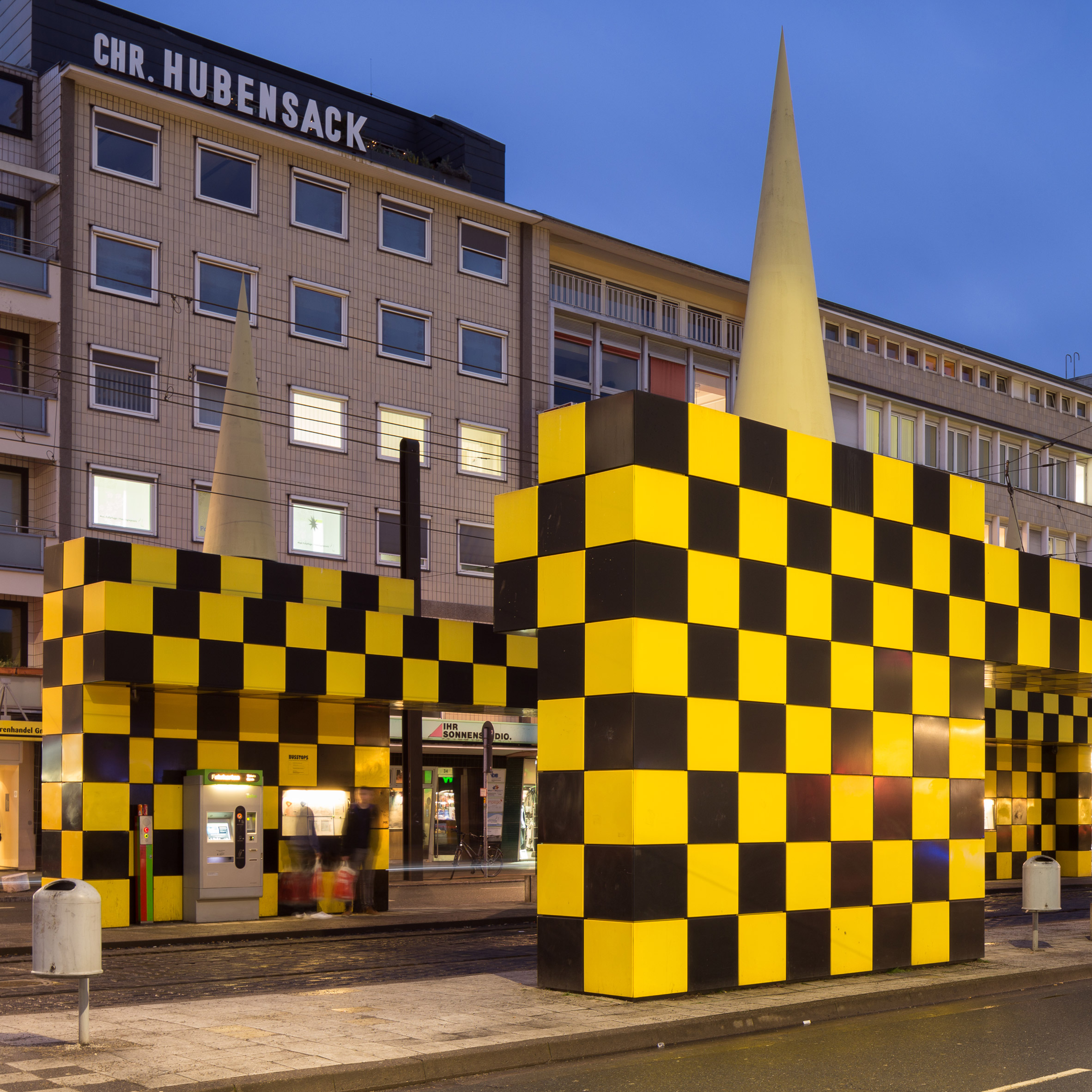
Steintor bus stops, Hannover, Germany, 1992
This bus and tram station in Hannover was hard to miss, with its black and yellow chequerboard walls and golden turrets.
It was recently dismantled to make way for a new line, but is expected to be rebuilt in a new location soon.
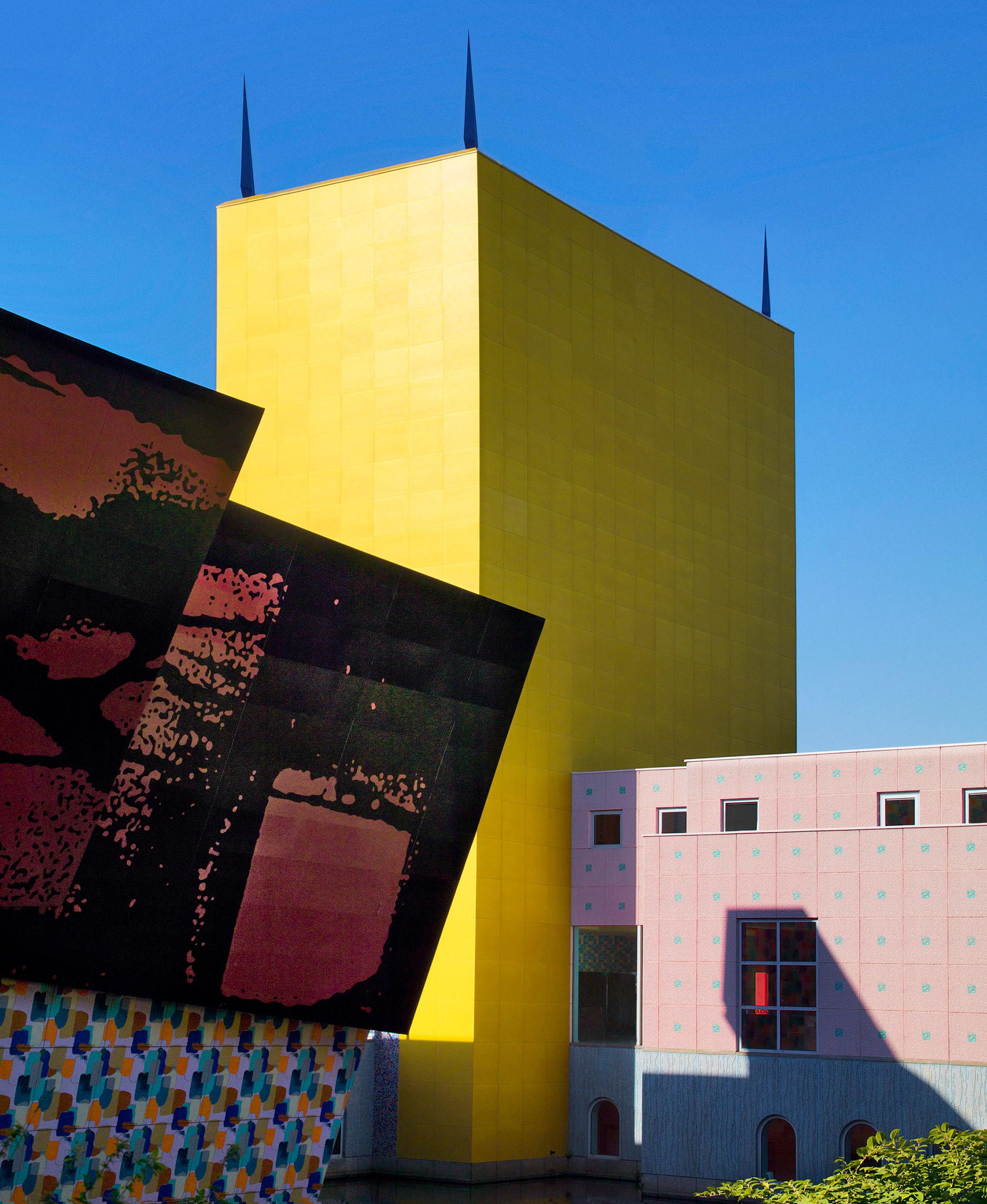
Groninger Museum, Groningen, Netherlands, 1994
Mendini enlisted Philipe Starck, Michele de Lucchi and Coop Himmelb(l)au to help him design the colourful collection of buildings that make up this important art and design museum in Groningen.
He designed the central museum building, which features a bold yellow tower, while his collaborators added an assortment of unusual pavilions around it.
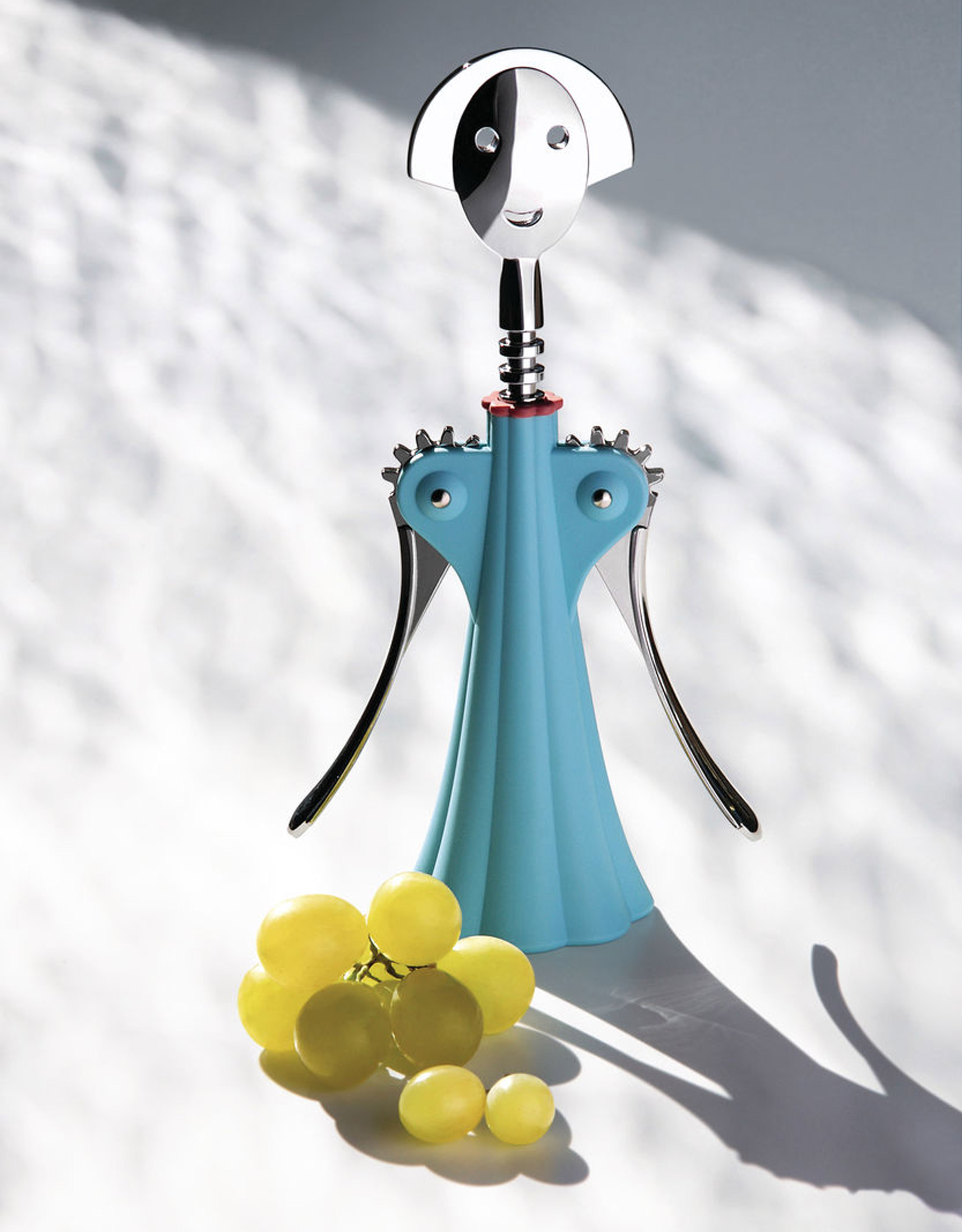
Anna G corkscrew, 1994
The anthropomorphic shape of this corkscrew is based on Mendini's friend and fellow designer, Anna Gili.
The product was a huge success for Alessi, selling 20,000 in the first year, and it spawned a family of matching products, including the Anna tea set and the Parrot corkscrew.
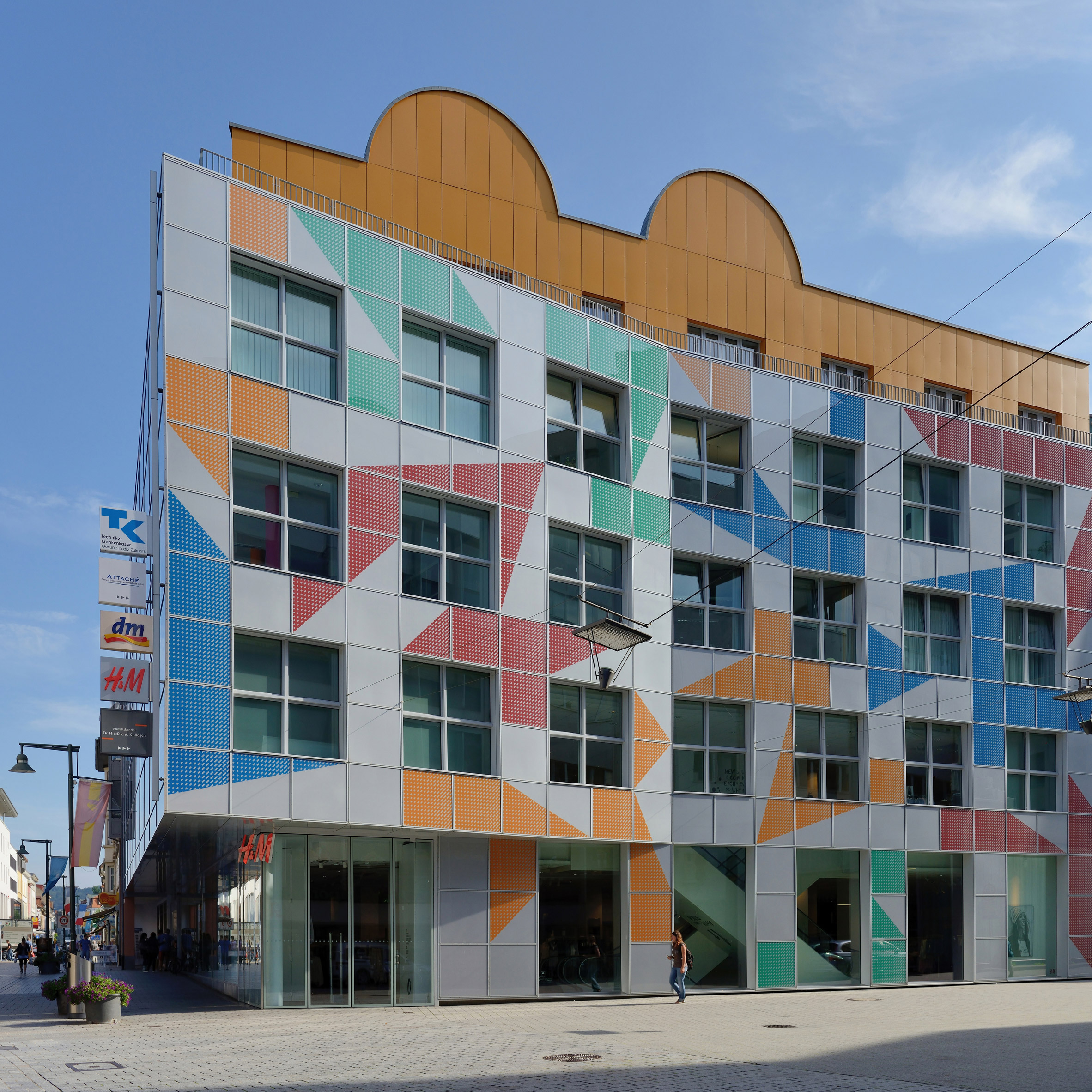
Galleria Mendini, Lörrach, Germany, 2004
Mendini's bold use of colour and shape is used to liven up this otherwise simple commercial building. It was originally intended as a shopping centre, hence the name, but eventually ended up as an office block.

Moka Alessi coffee maker, 2011
Over the years, Alberto Alessi has asked a select few designers to reimagine the classic Italian cafetiere invented by his grandfather Alfonso Bialetti.
Mendini's version features a curvaceous aluminium body and ergonomic handle, created to bring the design to a contemporary market.
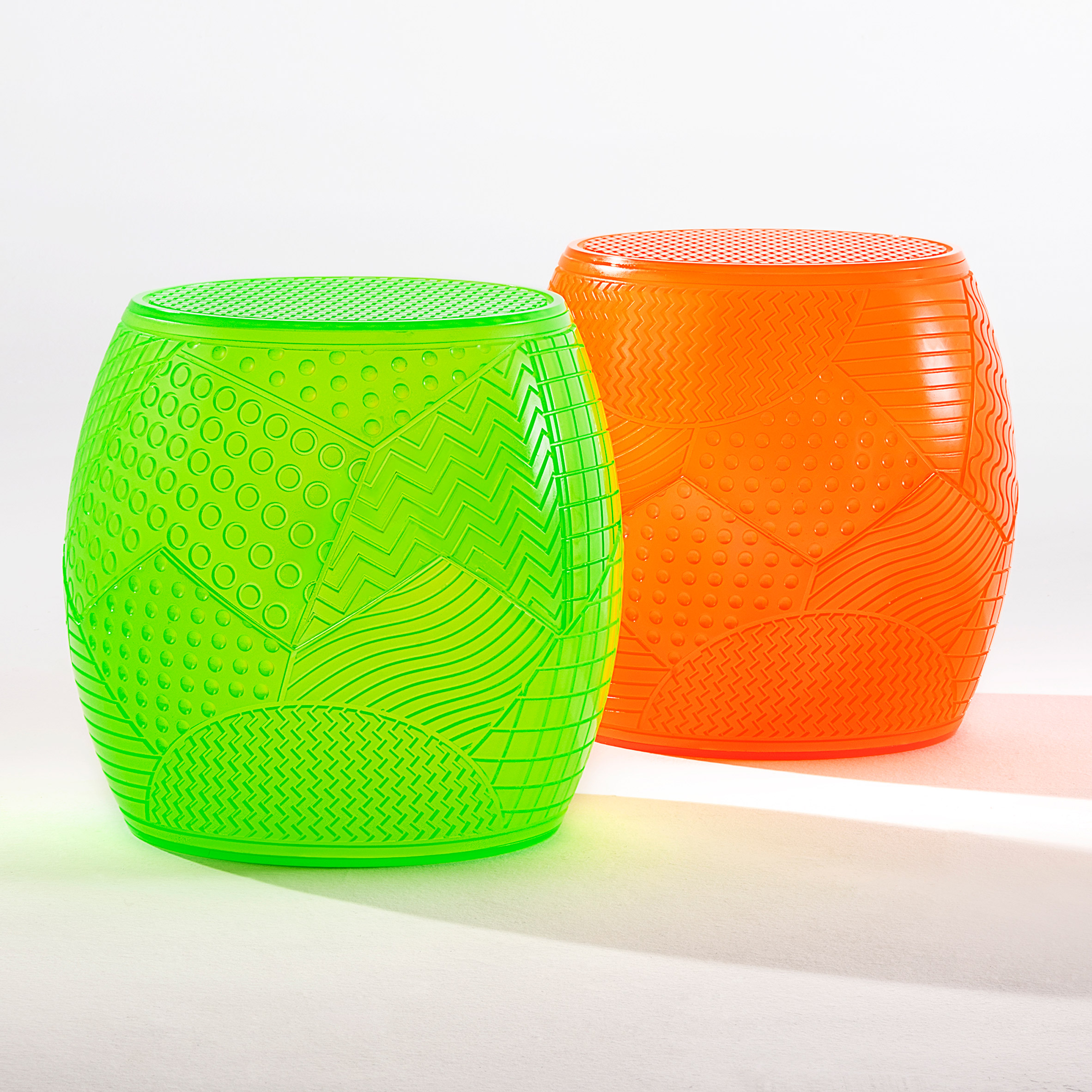
Roy stool for Kartell, 2015
Made from injection-moulded plastic, the Roy stool features graphics based on the work of pop artist Roy Lichtenstein. Its rounded shape is intended to reference a traditional Chinese stool.
Appartement N°50 at Cité Radieuse, Marseille, France, 2016
In 2016, Mendini became the latest in a series of designers to revamp an apartment in Le Corbusier's seminal Cité Radieuse housing block in Marseille.
His refurbishment included colourful totems and postmodern furnishings, plus playful reimaginings of some his classic designs, including a gold mini version of the Proust chair and ornaments covered in his now-trademark pointillist pattern.
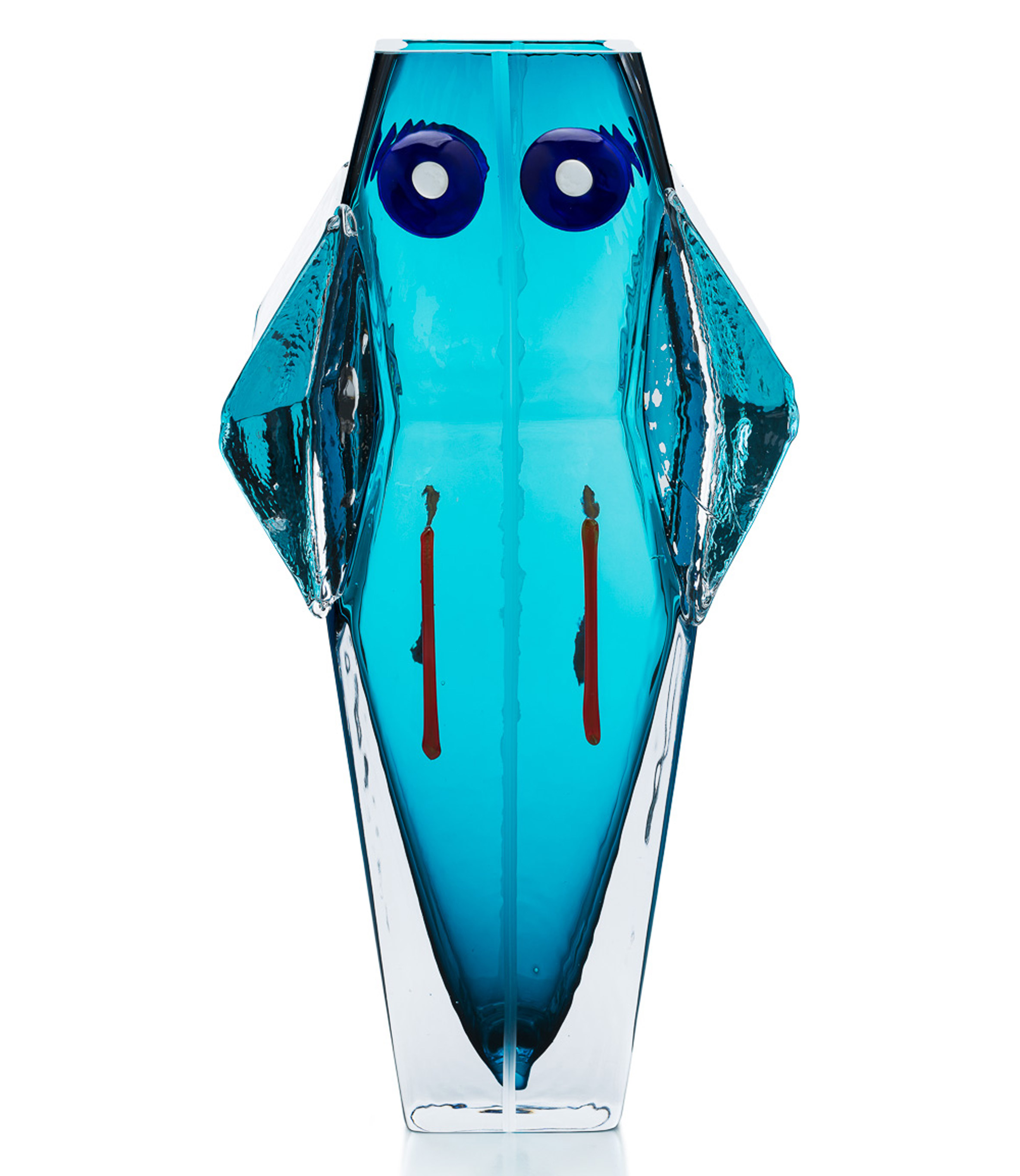
For his final Salone de Mobile in Milan, Mendini was part of the memorable Monster Cabaret, a project by glass brand Lasvit that saw an old puppet theatre transformed into a showcase of "monsters".
Mendini's design, called Rombo, was a series of ghostly vases with striking blue eyes.
The post 10 designs worth knowing by the late Alessandro Mendini appeared first on Dezeen.
from Dezeen https://ift.tt/2ty1W8b
via IFTTT
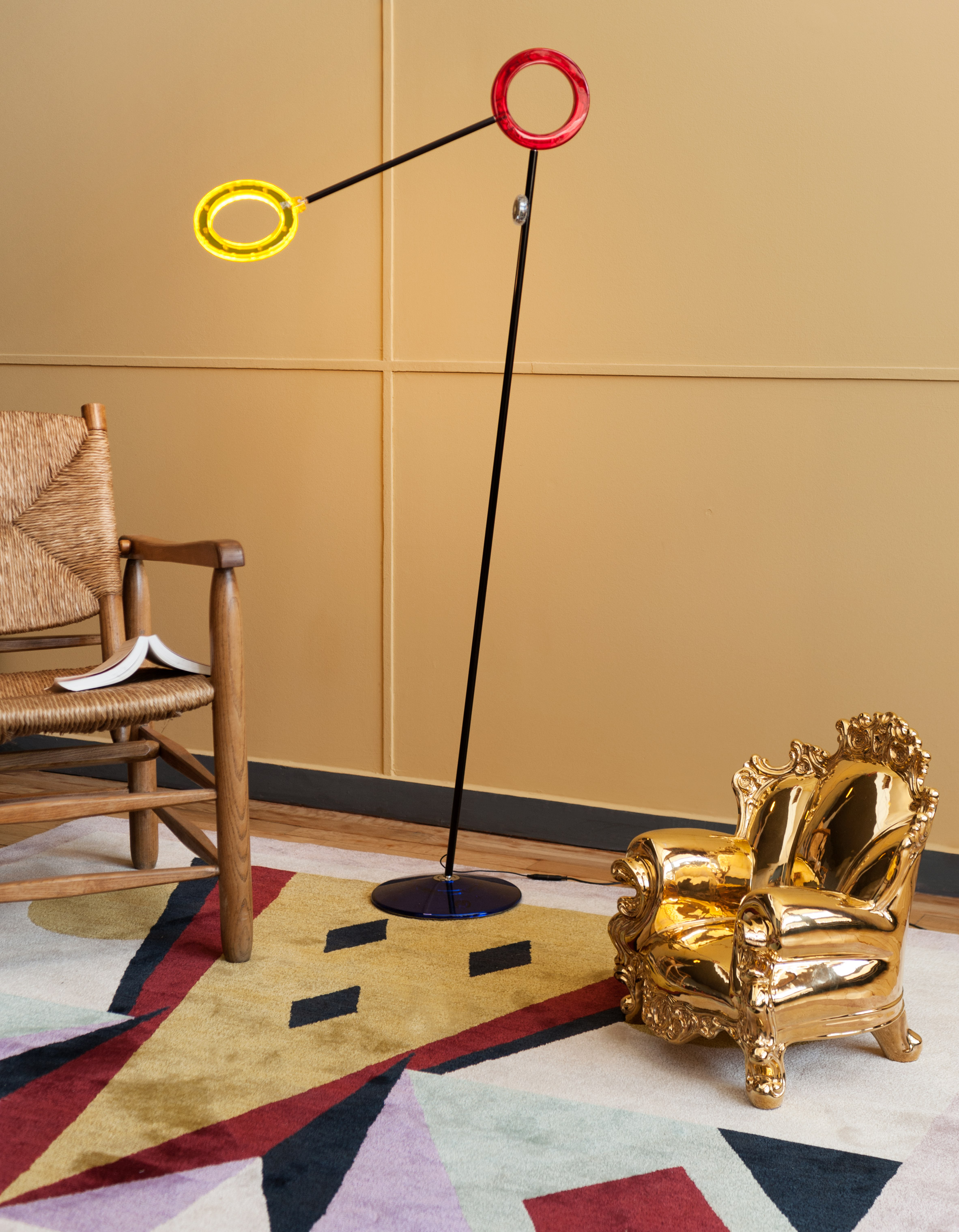
0 comments